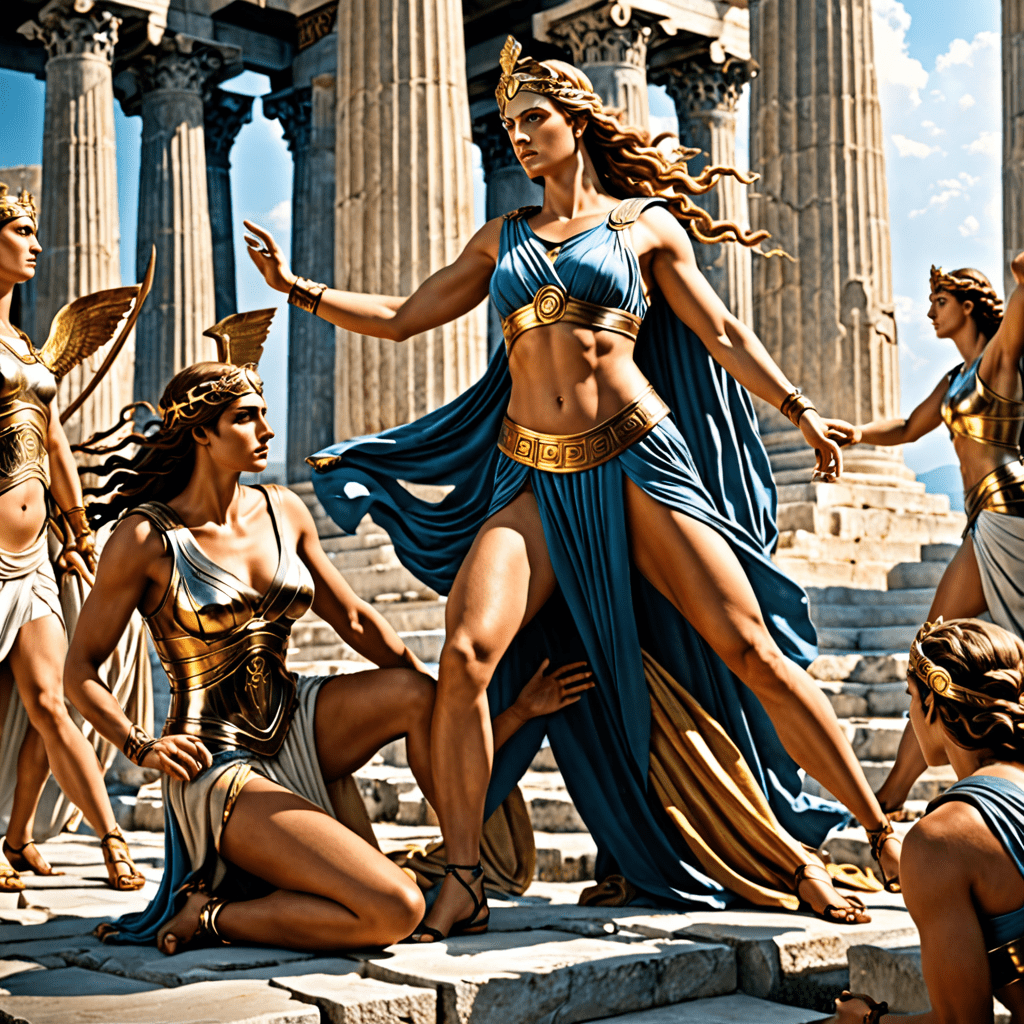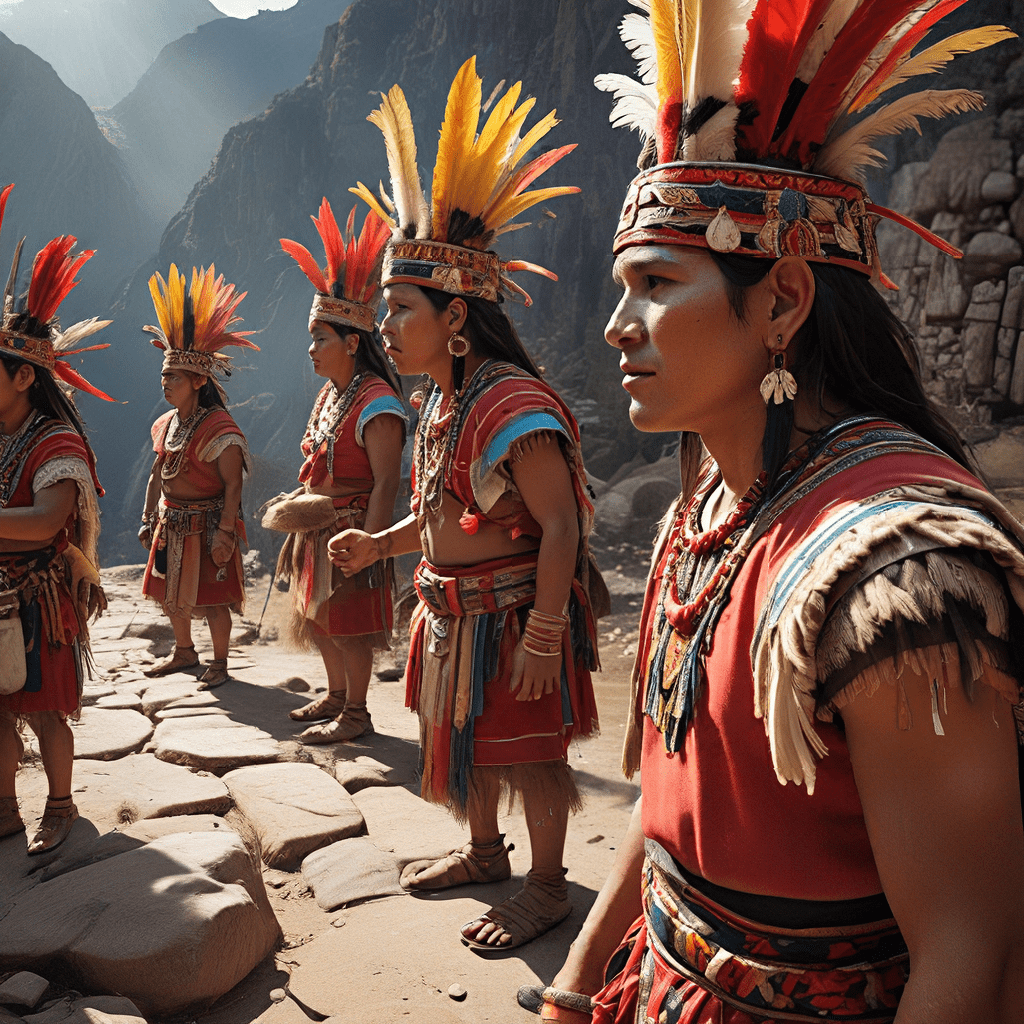Fierce Fables: The Most Intense Mythological Battles Uncovered!
1. Introduction to Mythological Battles
Mythological narratives are rich tapestries woven from the threads of cultural heritage, historical events, and human emotion. These tales often feature epic battles that serve as more than just stories of conflict; they represent the values, fears, and aspirations of the cultures that birthed them. From the eternal struggle between good and evil to the personal vendettas that shape destinies, battles in mythology reveal the complexities of human nature and the societies that celebrate them.
The significance of these mythological clashes extends beyond mere entertainment. They mirror the moral dilemmas and societal norms of their time, allowing us to glean insights into the cultural psyche. As we explore some of the most intense mythological battles, we uncover not only heroic feats and tragic losses but also the very essence of the civilizations that created these narratives.
2. The Epic Showdown: Gods vs. Titans
One of the most significant mythological battles is the Titanomachy, a cataclysmic war between the Olympian gods and the Titans. This conflict marked the transition from the rule of the Titans, led by Cronus, to the reign of the Olympians, spearheaded by Zeus.
- Origins: The Titanomachy arose from a prophecy that foretold the downfall of Cronus at the hands of one of his children. To prevent this, Cronus swallowed each of his offspring at birth.
- Outcomes: Eventually, Zeus, the youngest son, escaped this fate and rallied his siblings, leading to a ten-year-long battle that culminated in the defeat of the Titans, who were cast into Tartarus.
- Key Figures: Prominent figures in this conflict include Zeus, the god of the sky; Cronus, the Titan ruler; and other Olympians like Poseidon and Hades.
3. The Trojan War: A Clash of Mortals and Deities
The Trojan War, immortalized in Homer’s Iliad, is a cornerstone of Western literature that depicts the complex interplay between mortals and gods. This epic conflict not only showcases human valor but also the capricious nature of divine beings.
- Overview: The war began over a dispute involving Helen, the most beautiful woman, whose abduction by Paris sparked a decade-long siege of Troy.
- Roles of Gods: The gods played pivotal roles in this conflict, with Athena supporting the Greeks, Hera seeking revenge, and Aphrodite favoring the Trojans. Their interventions often shifted the tide of battle, emphasizing the theme of fate versus free will.
4. Norse Mythology: The Final Battle of Ragnarök
In Norse mythology, Ragnarök represents the end of the world, a cataclysmic event that encompasses a series of intense battles between gods and monstrous beings.
- Description: Ragnarök is characterized by chaos, destruction, and the death of several key gods, including Odin and Thor. This apocalypse is foretold to be marked by natural disasters and the rise of the dead.
- Key Characters: Central figures in this battle include Odin, the Allfather; Thor, the god of thunder; and Loki, the trickster god, who plays a crucial role in the unfolding chaos.
5. The Battle of the Gods: Hindu Epics and the Mahabharata
The Mahabharata, one of the longest epic poems in the world, details the Kurukshetra War, a monumental conflict that pits the Pandavas against the Kauravas.
- Overview: This war not only involves human warriors but also divine interventions, with gods taking sides and influencing the outcome of battles.
- Lessons: The conflict teaches profound lessons about dharma (duty), righteousness, and the consequences of war, making it a foundational text in understanding Hindu philosophy.
6. Egyptian Mythology: The Duel of Horus and Seth
The rivalry between Horus and Seth is emblematic of the struggle between order and chaos in Egyptian mythology. This battle is not just a personal vendetta but a cosmic conflict that determines the fate of Egypt.
- Background: After the murder of Osiris, his son Horus sought to avenge his father and claim the throne, leading to a fierce battle with his uncle Seth.
- Symbolism: The struggle represents the eternal fight between good and evil and the restoration of order following chaos, a theme prevalent in many mythologies.
7. Celtic Myths: The Táin Bó Cúailnge
The Táin Bó Cúailnge, or the Cattle Raid of Cooley, is a significant tale in Irish mythology that highlights heroism, fate, and the consequences of pride.
- Overview: The story revolves around the conflict between the kingdoms of Ulster and Connacht, sparked by Queen Medb’s desire to steal the prized brown bull of Cooley.
- Cú Chulainn: The central hero, Cú Chulainn, single-handedly defends Ulster against overwhelming odds, showcasing the archetype of the tragic hero through his intense battles and sacrifices.
8. East Asian Legends: The War Between the Dragons and the Phoenix
In Chinese folklore, the legendary battle between the dragon and the phoenix represents the duality of existence and the balance of yin and yang.
- Summary: This mythological conflict symbolizes the struggle between opposing forces, with the dragon representing power and the phoenix embodying grace and transformation.
- Cultural Implications: The dragon and phoenix are icons of Chinese culture, often associated with imperial authority and marital harmony, reflecting the values of unity and balance.
9. Lesser-Known Battles: Indigenous Mythologies
Indigenous mythologies are replete with intense battles that reflect the values and beliefs of various cultures around the world.
- Exploration: Myths from Native American, Aboriginal Australian, and African traditions often feature fierce confrontations between deities, spirits, and human beings.
- Examples:
- The Great Spirit and the forces of chaos in Native American tales.
- The Rainbow Serpent’s battles against other beings in Aboriginal myths.
- Trickster figures like Anansi in African lore, often engaging in battles of wits and strength.
10. Conclusion: The Legacy of Mythological Battles
Mythological battles not only entertain us but also serve as profound reflections of the human experience. They shape our understanding of heroism, morality, and the complexities of existence. As modern storytelling continues to evolve, the themes and conflicts from these ancient narratives resonate today, influencing literature, film, and art.
The enduring impact of mythological conflicts reminds us of our shared humanity and the timeless struggles that define us. As we revisit these fierce fables, we are invited to reflect on our own battles and the values we hold dear.



